In a previous post on what size amp you need for different gig sizes I mentioned a few technical details about amplifier loudness. In this post I’m going explain these to help you make informed decisions about amplifiers. Your amp is half of your instrument so it’s important to know it as well as you know your guitar.
Fact 1: Doubling the Wattage of an amp does not double the volume
This is a common ‘rookie’ assumption. A ‘big’ amp (50-100W) is not actually all that much louder than a smaller one (15-30W). Many novice and even experienced guitarists think they need a big amp in order to gig. In fact there are plenty of reasons why a smaller amp would be better. See the ‘What size amp do you need for gigs?’ post referenced at the beginning for more details.
To understand this you will need to know a little about Decibels (dB). To keep things simple, I’m just going to cover some basic points:
- Decibels are not linear. The change from +1 to +2dB is much, much less than the change from +9 to +10dB
- An increase of 1dB is barely noticeable.
- An increase of 3dB is noticeable, but not too much. I usually think of it as about the same as a couple of clicks of the volume on your TV remote.
- An increase of 10db is huge. It will sound like the volume has doubled or more.
There is a useful site with sound clips illustrating different dB level changes.
If you double the power (Watts) of an amplifier you only get a +3dB increase in perceived volume. If you halve the power you only get a –3dB decrease. That’s not much change at all. So a 100W amp is not much louder than a 50W one. Unless you are often running the volume on maximum you’re unlikely to need a bigger amp.
To double the perceived volume coming from an amp you would have to increase the power by 10 times. So to double the volume of a 10W amp you would need a 100W amp. Or to put it another way round, a 10W amp is still half as loud as a 100W amp.
Fact 2: Speaker sensitivity is as important as Watts for amplifier loudness
Speaker sensitivity is very important for volume but we rarely hear about it. You usually have to delve deep into the manual or specifications of your amp to find out what the value is.
Without getting too bogged down in detail, speaker sensitivity is a measure of how effectively the speaker converts power from the amp (Watts) into sound. It is measured in dB. If you have a 100W amp plugged in to speakers with a sensitivity of 97dB it will be 3dB quieter than the same amp plugged in to speakers with a sensitivity of 100dB.
To put this another way, given what we know from Fact 1, the 100W amp going in to 97dB speakers will be the same volume as a 50W amp going in to 100dB speakers.
So if you really want to understand how loud your amp is going to be you need to know its speaker efficiency as well as its wattage.
Fact 3: Perceived loudness depends on the frequencies in the sound
Human ears are more sensitive to some frequencies than others. They are particularly sensitive to mid-range frequencies of 1-4kHz. These are the frequencies of human speech. It’s natural that we’ve evolved in order to be able to hear one another more effectively than other sounds.
This means that if you crank up the Mid control on your amp you will sound a lot louder than if you boost the bass or treble. Turning the Mid control down will make you sound quieter without touching the volume control.
Marshall amps have a more pronounced mid-range than some other brands (particularly Fender and Vox). This will make them sound louder even at similar outputs. I’m not saying this makes them better or worse, it’s just something to be aware of.
What to do with this information
This has been a really quick overview of some of the basics of amplifier loudness. There’s plenty more to research if you want to. The things I really want to get across with these facts are:
- There’s a lot more to amplifier loudness than Watts.
- You probably don’t need as many Watts as you might think. A smaller amp isn’t that much quieter than a big one.
- Speaker sensitivity is important. Know what it is when you choose an amp or you might not get the volume change you expected.
- It’s important to understand that the frequencies in your sound will affect how loud you sound. More Mid = louder.
If you keep these in mind you will make better decisions about what amps and settings to choose and use.
I know I’ve only skimmed the surface of these technical areas, so feel free to ask more questions in the comments or via email or social media.

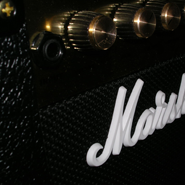
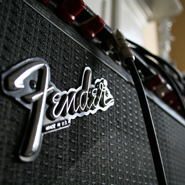
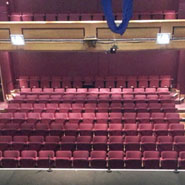
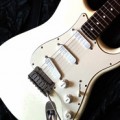
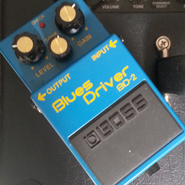
Pingback: Volume Again: Practicing What I Preach - Matt Helm Guitar